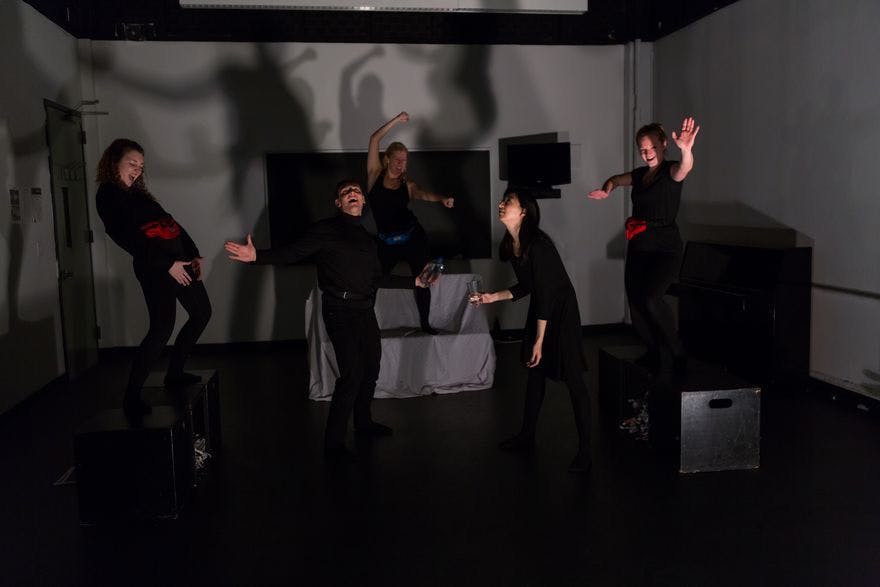
During their first semester, MFA Directing students at The New School for Drama wear many hats, both literal and figurative. Rethinking the relationship of the director to the entire production is part of their comprehensive introduction to the rich and multifaceted world of theater.
Tea Alagic, head of the MFA directing department and an internationally-acclaimed director in her own right, says that the curriculum is designed to expose students to as many theater-making roles as possible. “Within the first seven weeks,” she says “there is no sense of 'I do this and you do that'; everyone has to create equally.”
In fall 2017, this holistic approach was on full display in a collaboration with the Tectonic Theater Project, a New York-based troupe known for its unique improvisational techniques. First-year graduate students took part in a series of workshops centered on Moment Work, which is Tectonic's famous creative methodology in which directors, actors, playwrights, and other behind-the-scenes players collectively make work in a “simultaneous exploration of design and narrative.”
Moment Work essentially puts traditional theater on its head. Instead of taking a script and interpreting and presenting it, the Tectonic method brings members of the theater into an empty room, arming them with nothing but the passion to create. “So often in theater, we start with the text, which determines everything,” says workshop participant and MFA Directing student Pauls Macs. “The question that Tectonic asks is, What if we use every element within the theater-from the lighting to the props to the actors-as a foundation rather than start from a text?”
At its best, Moment Work uncovers a wellspring of spontaneous creativity that eventually is sculpted into a finished work. But the process is richly generative. “The point is to create, create, create,” says fellow directing student Diane Machin. Her favorite “moment” exercise was when students were challenged to devise short plays based on a single obituary line in twenty minutes. “Under that kind of pressure, you can't filter, you just have to go,” she explains, “they don't want you to edit.” Macs and Machin were both delighted by the incredibly diverse interpretations of a man's life that the moment exercise yielded. Unbridling their creativity, the students were able to expand their notion of what theater can be.
Besides challenging the traditional theater model, Moment Work exposes young directors to the many elements that must come together to form a successful production. In Tectonic's workshops, students experience what it's like to be a director, actor, lighting designer, costumer, or playwright. They learn what it means to give orders and follow instruction. This fluidity between roles and responsibilities lets aspiring directors gain a thorough and unique, even intimate, knowledge of the stage.
“It's very important for a director to know what it takes to create a show,” says Alagic. “You need to know that there is a person doing the laundry, a prop person who waits all day in tech to get your notes, and lots of other people who do important things, big and small, to make the production happen. I always say, in the end, that you have to thank everybody, because there's a lot of people that make the ship go.”